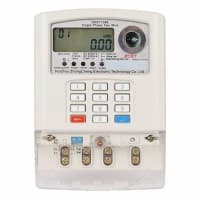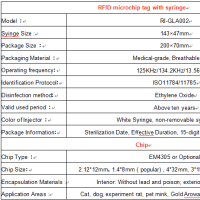Global Geosynthetics Market is segmented on the basis of product type, material type, application, and region. Geosynthetics is a planar product manufactured from polymeric material used with soil, rock, earth, or other geotechnical engineering related material as an essential part of a man-made project, structure, or system. These products or materials can be used, often in conjunction with natural materials, for an enormous variety of purposes. Geosynthetics have been and continue to be used in all surfaces of the transportation industry, including roadways, airports, railroads, and waterways. The main functions performed by geosynthetics are filtration, drainage, separation, reinforcement, provision of a fluid barrier, and environmental protection. Some geosynthetics are used to separate distinct materials, such as different types of soil, so that both can remain completely intact.
geosynthetics
Increasing investments in infrastructure and environmental projects by both, developing and developed countries are likely to drive the growth of Geosynthetics market. Correspondingly increasing demand from waste treatment applications, transportation sector and regulatory support on account of enhancing civil facilities, several projects were taken by national government which has continued to lift the growth in the Geosynthetics market. Whereas, volatility of raw material prices used in manufacture of Geosynthetics is a major restraint to the growth of Geosynthetics market.
CHINA-geosynthetics
Ximen Landfill Onsite
OEM-geosynthetics
Xizan Copper Mining Project
Geosynthetics Market is classified, by product type into Geotextiles, Geogrids, Geocells, Geomembranes, Geocomposites, Geosynthetic Foams, Geonets, and Geosynthetic Clay Liners. Geotextiles segment accounted for the largest market share of the Geosynthetics Market and is expected to remain dominant over the forecast period. Geotextiles are flexible, textile-like fabrics of controlled permeability used to provide filtration, separation or reinforcement in soil, rock and waste materials.
WHOLSALEgeosynthetics
Citied from Wikipedia
Geomembranes are essentially impermeable polymeric sheets used as barriers for liquid or solid waste containment. Geogrids are stiff or flexible polymer grid-like sheets with large openings used primarily as reinforcement of unstable soil and waste masses. Geonets are stiff polymer net-like sheets with in-plane openings used primarily as a drainage material within landfills or in soil and rock masses. Geosynthetic clay liners- manufactured bentonite clay layers merged between geotextiles and/or geomembranes and used as a barrier for liquid or solid waste containment.Geopipes are perforated or solid wall polymeric pipes used for the drainage of various liquids. Geocomposites are hybrid systems of any, or all, of the above geosynthetic types which can function as specifically designed for use in soil, rock, waste and liquid related problems. Geofoams are lightweight blocks which act as void filling materials in certain construction applications.
Geosynthetics Market is classified, by material types into HDPE, polypropylene, polyester and other polymeric alloys based geosynthetics. Geosynthetics Industry is classified, by application into Transportation engineering, Geotechnical engineering, Civil engineering, Water engineering, Environmental engineering, and others. Increasing number of infrastructure development projects in developing countries and increasing demand of geosynthetics in roadways and rail construction applications across the globe has resulted in a steady growth of the global market.
geosynthetics-FACTORY
geosynthetics
Geosynthetics Industry is segmented, geographically into North America, Europe (Eastern Europe, Western Europe), Asia Pacific, Latin America, Middle East and Africa. Asia Pacific accounted for the largest market share of Geosynthetics Market and is expected to develop as the fastest growing market during the forecast period. Countries like India, China and Russia in particular, are expected to witness strong growth in acceptance of geosynthetics in construction and geotechnical projects. Middle East and Africa is expected to be the fastest growing regional market for geosynthetics due to the rising usage of geosynthetics in construction and infrastructure industries in this region.
geosynthetics
Increasing investments in infrastructure and environmental projects by both, developing and developed countries are likely to drive the growth of Geosynthetics market. Correspondingly increasing demand from waste treatment applications, transportation sector and regulatory support on account of enhancing civil facilities, several projects were taken by national government which has continued to lift the growth in the Geosynthetics market. Whereas, volatility of raw material prices used in manufacture of Geosynthetics is a major restraint to the growth of Geosynthetics market.
CHINA-geosynthetics
Ximen Landfill Onsite
OEM-geosynthetics
Xizan Copper Mining Project
Geosynthetics Market is classified, by product type into Geotextiles, Geogrids, Geocells, Geomembranes, Geocomposites, Geosynthetic Foams, Geonets, and Geosynthetic Clay Liners. Geotextiles segment accounted for the largest market share of the Geosynthetics Market and is expected to remain dominant over the forecast period. Geotextiles are flexible, textile-like fabrics of controlled permeability used to provide filtration, separation or reinforcement in soil, rock and waste materials.
WHOLSALEgeosynthetics
Citied from Wikipedia
Geomembranes are essentially impermeable polymeric sheets used as barriers for liquid or solid waste containment. Geogrids are stiff or flexible polymer grid-like sheets with large openings used primarily as reinforcement of unstable soil and waste masses. Geonets are stiff polymer net-like sheets with in-plane openings used primarily as a drainage material within landfills or in soil and rock masses. Geosynthetic clay liners- manufactured bentonite clay layers merged between geotextiles and/or geomembranes and used as a barrier for liquid or solid waste containment.Geopipes are perforated or solid wall polymeric pipes used for the drainage of various liquids. Geocomposites are hybrid systems of any, or all, of the above geosynthetic types which can function as specifically designed for use in soil, rock, waste and liquid related problems. Geofoams are lightweight blocks which act as void filling materials in certain construction applications.
Geosynthetics Market is classified, by material types into HDPE, polypropylene, polyester and other polymeric alloys based geosynthetics. Geosynthetics Industry is classified, by application into Transportation engineering, Geotechnical engineering, Civil engineering, Water engineering, Environmental engineering, and others. Increasing number of infrastructure development projects in developing countries and increasing demand of geosynthetics in roadways and rail construction applications across the globe has resulted in a steady growth of the global market.
geosynthetics-FACTORY
geosynthetics
Geosynthetics Industry is segmented, geographically into North America, Europe (Eastern Europe, Western Europe), Asia Pacific, Latin America, Middle East and Africa. Asia Pacific accounted for the largest market share of Geosynthetics Market and is expected to develop as the fastest growing market during the forecast period. Countries like India, China and Russia in particular, are expected to witness strong growth in acceptance of geosynthetics in construction and geotechnical projects. Middle East and Africa is expected to be the fastest growing regional market for geosynthetics due to the rising usage of geosynthetics in construction and infrastructure industries in this region.



















※コメント投稿者のブログIDはブログ作成者のみに通知されます